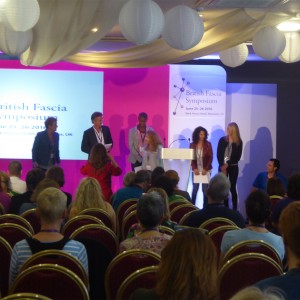Some of you may know that I’ve been involved in my own independent research now for the last 14 years. It involves the development of a system (aimed at manual therapists and body workers but not exclusive to that population) that perpetually minimises the accumulation of physical stress on the body.
It allows your body to heal and redress functional and structural dysfunctions all through natural processes. It enables you to restore your vitality, reduces overall pain and gives you back the hope that your body will not ‘fail’ due to the physical demands of your work and lifestyle.
Over the last 16 years I’ve drawn on the work of fascia-informed manual techniques, contemplative practice, yoga and transpersonal approaches to human wellness to inform this novel piece of research.
It was a deep call to understand my body more clearly as one that has been riddled with pain and dysfunction since a young child, perhaps stemming from my pes planus (or severe flat feet). I found that in a particular relaxed state, the body-mind system is sensitive to more subtle movements and processes in the body that normally escapes ones level of perception. By training to utilise the breath with other focal areas of the body, one can track and realise an innate capacity of the body to reorganise itself to reduce tension globally in the system. In other words the body undergoes an ongoing relaxation response. This is not an unusual phenomenon. The relaxation response or parasympathetic response is well documented in the scientific literature. It can be induced in the body with various approaches such as breathing (Pal et al, 2004) manual therapy (Shleip, 2003) yoga and transcendental meditation (Jevning et al, 1996)
What is different about the Integra Method System is that this relaxation response is experienced as a perpetual felt-sense of the body freeing itself of tension globally in real-time. This implies that any progressive accumulation of allostatic load (wear and tear) on the body is constantly being readjusted such that the system/body does not maintain these stresses in the tissues. This not only minimises injury or the development of chronic dysfunction from poor postures but also from overloaded, overused or overstrained tissues. The body here is actively re-organising the connective tissue to create favourable environments for optimal health; that is freedom of movement, fluidity, hydration and less tension in the system, along with an orchestration of the other body systems to support these processes.
Recently I’ve had the privilege to be able to share my work on an international platform at the Fascia Research Congress 2015 in Washington and recently this year at the British Fascia Symposium, where I was acknowledged for the work and collected 2nd prize for my research. I have the honour of currently working with a practice group who are exploring their bodies using this System and we are all quite excited at what more we all are discovering with this approach.
I’m going to be writing more about it here to keep you up to date with how this body of work is growing. There are many other topics that this research touches on that I feel have gone by the wayside in a profession that deals with the body as primary subject; such as embodiment, lived experience and human potential. But not now! You’ve been reading for quite long enough now, so watch out for more on these topics and the Integra Method System in future posts.
Thanks for reading this far.
Warmly
Andrea
References
Jevning, R., Anand, R., Biedebach, M., Fernando, G. (1996) Effects on regional cerebral blood flow of transcendental meditation. Physiological Behaviour, 59 (3), 399-402.
Pal, G., S, Velkumary & Madanmohan (2004) Effect of short-term practice of breathing exercises on autonomic functions in normal human volunteers. Indian Journal of Medical Research, 120 (20), 115-121.
Schleip, R. (2003) Fascial plasticity- A new neurobiological explanation. Part 2. Journal of Bodywork and Movement Therapies, 7 (2), 104-116.

